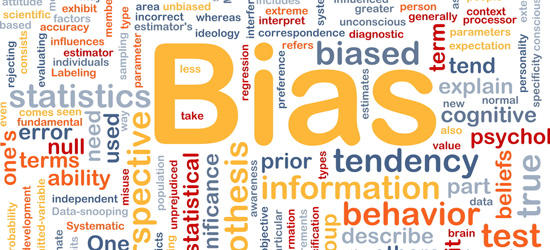Science is what has advanced civilizations around the world, no matter which civilization is in question. They’ve all relied on science in some way. From as simple as turning a piece of stone into a tool, to using the most advanced electronics. Science has produced technology that has made our lives easier. However, it would be arrogant and naive to think science has no flaws. In fact, throughout history, science has had it’s fair share of bumps and bruises. Even today as we speak, there are many things that could improve in every science community. Here are ways, we can reduce the quantity of such flaws within every science community.

1.) Don’t be arrogant: The first thing that comes to the minds of people who hold contempt for specific scientists is the arrogance of said scientists. While they may not openly admit it, their behavior and actions scream condescension. This attitude will not get you many supporters, this attitude will instead get you a lot of opposition who will do everything the can to discredit you. Be humble, don’t act superior just because of your IQ level and or education level.

2.)Put your political biases aside: Your political ideology is irrelevant to your work, yes there are certain fields of science that focus on society and politics but your personal political biases should not cloud your judgement. Should your political biases get in the way, the credibility of any results and statistics you produce will be called into question. You should be able to be impartial and carefully analyze and gather statistics from every perspective involved.

3.)Put your personal biases aside: Even without politics involved, we all have our own biases, philosophies and ideas of how things should be. When it comes to science, your personal biases should not impair your ability in your field. Of course you can put forth ideas and philosophies to the test but do not try to rig things in accordance to your biases. Rigging things in your favor obviously diminishes credibility because opinions are not facts.

4.) Don’t use the false dichotomy: Always acknowledge that many things aren’t black and white. Always realize that there may be many other variables involved that can only be noticed through closer observation. Don’t expect to always get the same result from certain experiments or observations. For example, Pumas usually yield to bears but there have been several occasions where Pumas managed to defeat bears. Always acknowledge exceptions and the fact that there could be more than meets the eye.

5.) Be skeptical yet open minded, Acknowledge the possibility of new discoveries: The world and the universe are very big places, it would be arrogant and naive to assume we have it all figured out. We don’t even know everything about the human body, let alone our planet or the universe and that’s an understatement. For example, in regards to humans, scientists have recently discovered 6,500 genetic differences between males and females. And other scientists have also discovered indications that perhaps all humans originally started as male rather than gender neutral while in the womb. Which is why we must always be open minded to new discoveries. But that doesn’t mean we should believe every single thing without questioning and analyzing it. Nonetheless, the proof of there being vast amounts of things to be discovered is everywhere, specifically in the form of improvements constantly being made, new species being discovered and so on. The technology we currently use is so much more advanced than what previous generations had in their youth. And it’s fairly safe to say the technology the next generation will have, will be more advanced than what we currently have.

6.)Considerations when discussing religion and science: A rather controversial topic that brings out the worst of both sides. Most people will say “No, these two cannot coexist” and I agree if we look at it by using the false dichotomy. But using the false dichotomy only scrapes the surface. First thing is first, there is no rule or law at least in most countries that says you can’t be both religious and a scientist. That would be a false dichotomy, this is not the Soviet Union. There have been and still are many scientists who had/have religious views themselves, from Galileo to Martin Nowak, there’s a long list of scientists who were/are believers. Even the Vatican has their own science department. Another thing worth mentioning is that atheism is not always synonymous with anti-theism, just because someone calls themselves atheist doesn’t necessarily mean they are hostile towards religion, they may simply be non believers who may change their mind if they get enough proof.
The one thing people seem to forget is that science isn’t just restricted to wearing lab coats and mixing chemicals, science is much more vast than that. Science also applies to logic and philosophy. Many can argue that religions are philosophies themselves.
If you are looking at it from an unbiased perspective, without using false dichotomies, you may find aspects in both science and religion that correlate with each other as interpreted in this article. And thus explains why neither side of the argument can fully dismiss the other. So regardless if you are a religious person or an atheist, try to carefully analyze both sides from an unbiased perspective. Nobody is saying to infuse religion and science with each other but acknowledge that both sides have valid points. Whether the valid points are coincidental or not, that’s up to each individual to decide.

7.) Gather sufficient proof to support your claims: The main thing you need to put forth a new theory or a new perspective is to gather as much proof as you can to support your theory. The more proof you have, the more likely you are to be heard by those you try to convince.

8.)Be confident: Arrogance is a “no no” but confidence is necessary especially when bringing up new theories, if you have sufficient proof to back up your theory, then it should show through your confidence. If you show even the slightest bit of doubt, it may be noticeable to the trained eye and it may affect your credibility by raising suspicions among those your are trying to convince.

9.) Avoid using excessive emotion: A common mistake is using more emotion than credible proof. Your personal feelings are not enough to convince people when it comes to scientific claims. People of science want proof(statistics, observations, studies, videos etc) in order to be convinced, using appeal to pity will not be enough. You can have some emotion, just make sure you have sufficient credible proof.

10.) Question erroneous, immoral and unethical practices and don’t show sycophancy or neglect: There’s nothing wrong with pointing out errors and immoral practices within the science community. In fact, shining light on issues within the science community is a justifiable action. Here are possible examples: questioning the credibility of individuals who use their political and or personal biases to promote pseudoscientific claims. Questioning certain practices of a specific field of science, like Psychiatry’s usage of psychiatric hospitals. Raising awareness of previous faults within certain fields of science and so on.

11.) Don’t use ad hominems/be too aggressive: The one thing that can instantly discredit you is if you choose to attack the individuals who try to challenge you rather than their stances. This shows that you either have no way to appropriately challenge doubts or have made it personal. Be as calm as possible.

12.) Be resourceful/be able to improvise: In the science community, you may occasionally need to improvise to get results. Which could be planning ahead, finding the easiest way of getting results quickly and effectively, and so on. Being resourceful will definitely get people to respect you.

13.) Cooperate with others: You may occasionally have to work with others depending on your field. Your ability to coexist with others will definitely grant you a lot of respect among your peers, especially if you have leadership skills. But most importantly, you’ll accomplish a lot more than working alone.
14.)Acknowledge the possibility you could be partially or completely wrong : The toughest thing to do is admit you are wrong. This also applies in the scientific community, when two or more sides put forth different theories to explain or solve something, at least one of party will be either partially or completely wrong. The party in such a predicament should be prepared to admit they are wrong, there is no shame in it. You may feel disappointed for a while but that’s about it. You’ll eventually get over it and have plenty of chances to redeem yourself. Although admitting you’re wrong is easier said than done.

These are some of the many ways you can be credible and gain respect in the science community.
 Holidays
Holidays  Girl's Behavior
Girl's Behavior  Guy's Behavior
Guy's Behavior  Flirting
Flirting  Dating
Dating  Relationships
Relationships  Fashion & Beauty
Fashion & Beauty  Health & Fitness
Health & Fitness  Marriage & Weddings
Marriage & Weddings  Shopping & Gifts
Shopping & Gifts  Technology & Internet
Technology & Internet  Break Up & Divorce
Break Up & Divorce  Education & Career
Education & Career  Entertainment & Arts
Entertainment & Arts  Family & Friends
Family & Friends  Food & Beverage
Food & Beverage  Hobbies & Leisure
Hobbies & Leisure  Other
Other  Religion & Spirituality
Religion & Spirituality  Society & Politics
Society & Politics  Sports
Sports  Travel
Travel  Trending & News
Trending & News 
Most Helpful Opinions